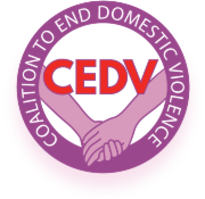Coalition to End Domestic Violence
April 26, 2018
The Bipartisan Task Force to End Sexual Violence held a briefing on April 19 on the topic of “trauma-informed care.” The event description stated:
Sexual violence can be an extremely traumatizing experience that has various coping responses. Trauma-informed services account for the brain and body’s response to violence, as well as the various needs survivors may have after a traumatizing event. Understanding trauma-informed care is a critical foundation of making policy that supports survivors of sexual violence in educational settings.
Everyone agrees that sexual violence can be a traumatizing experience and that complainants need to be treated with respect. But proponents of “trauma-informed” care take their argument a big step further, insisting that complainants always be referred to as “victims” or “survivors.” This guilt-presuming language may be fine in the treatment and counseling context. But in the investigation phase, it is not.
During the April 19 hearing, “complainants” never made an appearance, only “survivors.”
ABBY HONOLD ACT
The Abby Honold Act (H.R. 4720) states one of its purposes is to “ensure that covered individuals use evidence-based practices to respond to and investigate cases of domestic violence, dating violence, sexual assault, and stalking.” (emphasis added).
With Orwellian consistency, the bill uses the term “victim,” never “complainant” or “accuser.” In sexual non-consent cases, often there is no objective evidence of victimization, only “he-said, she-said” testimonies. So if the investigator is told to refer to the complainant as a “victim,” obviously that will bias the investigation. And one of the most important pillars of due process is an investigation that is neutral, objective, and fair.
The Abby Honold Act never defines the words, “trauma-informed.” Which is odd, since the bill tries to project an imprimatur of scientific respectability.
JUDGES FROWN ON TRAUMA-INFORMED
To date, judges have ruled in favor of accused students 89 times,[i] many of those cases involving the use of “victim-centered” investigations such as trauma-informed.
In the most recent case, Judge Tara Desautels ordered the University of California-Santa Barbara to pay $31,000 to an accused student, specifically calling out the “trauma informed” training that was used in Title IX proceeding.[ii]
Harvard Law professor Janet Halley has ridiculed trauma-informed precepts as seeking to sway investigators when accusers are “unreliable and incoherent.” Journalist Emily Yoffe has criticized trauma-informed theory as “junk science.”[iii]
WHO IS THE REAL VICTIM, ANYWAY?
Attending the April 19 hearing were the parents of a male student who had been accused and initially found responsible for sexual assault at the campus level. A jury in the criminal case later found him not guilty of all charges — after very brief deliberations. Afterwards the campus revisited the case on appeal, with all of the evidence this time, the school chancellor determined there was no way the student could be held responsible. The school’s original decision, which presumed guilt from the outset, was overturned.
So who was the real “victim”? The false accuser, or the falsely accused? Mr. Orwell certainly would know.
[i]https://docs.google.com/spreadsheets/d/1CsFhy86oxh26SgTkTq9GV_BBrv5NAA5z9cv178Fjk3o/edit#gid=0
[ii] https://www.thecollegefix.com/post/44175/
[iii]https://www.theatlantic.com/education/archive/2017/09/the-bad-science-behind-campus-response-to-sexual-assault/539211/


